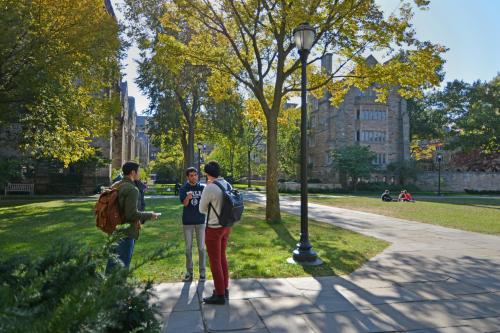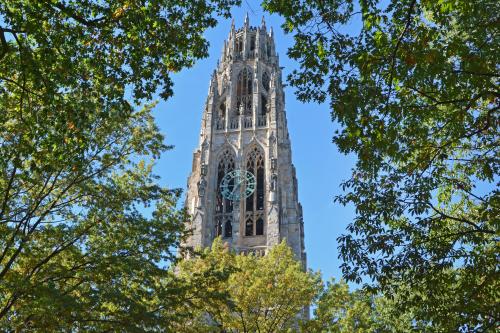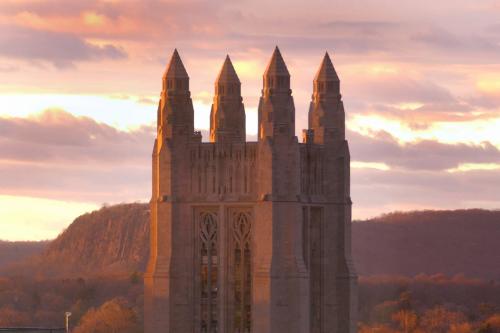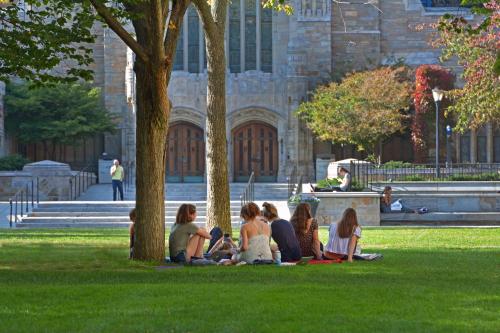Vision
Yale College offers a liberal education that aims to:
- Educate talented students of diverse backgrounds to lead and serve in a complex and changing society.
- Provide a supportive residential community of learning in which social experience and the free exchange of ideas underpin the pursuit of knowledge.
- Cultivate both the broad intellectual, moral, civic, and creative capacities and the more specialized skills that will allow students to thrive beyond the college gates.
- Draw on the distinctive strengths and traditions of Yale University as a globally recognized leader across the arts, humanities, social sciences, sciences, engineering, and the professions.
We seek to educate students who are broad-minded and autonomous, capable of making judgments and taking responsibility for their decisions. We believe that a liberal education should encourage students to become curious, engaged citizens. It should also prepare them well for their professional lives and further educational opportunities and help them develop as active learners who thrive in complex environments.





